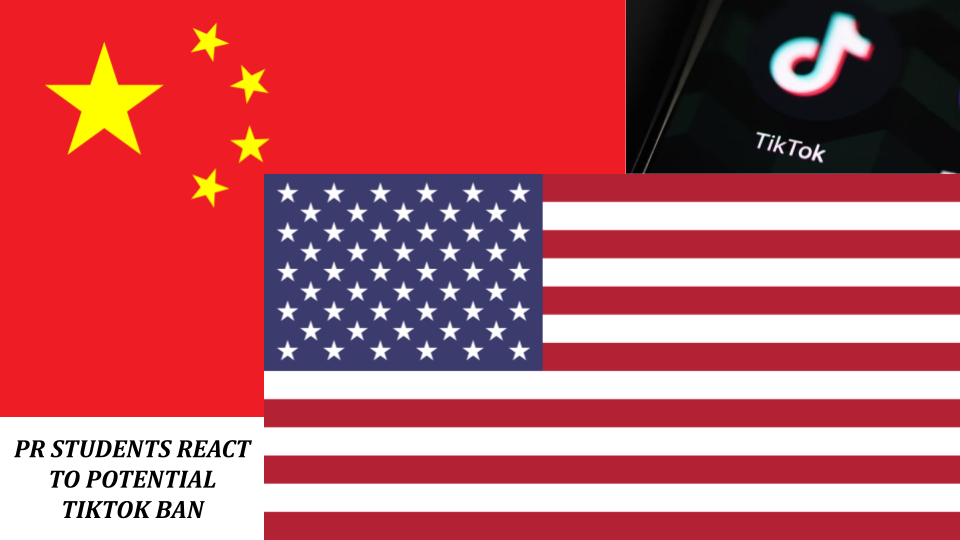“Is TikTok going to be banned?” This is the question on every teenager’s mind this past week.
On Wednesday, April 24 the president, Joe Biden, signed the bill to have the Chinese owned app banned to American users. The bill gave ByteDance, the current owner of the app, about 9 months, 270 days, to sell the app to an American owned company. The worry of Congress is that the Chinese government is taking and stealing United States citizens’ information.
As Tim Edgar, a lecturer at Harvard Law School, said in the school’s recent TikTok post, “Congress has done almost nothing to protect digital privacy, despite debating it for many years.”
So why is TikTok going to change anything? Edgar continued by saying “Instead of passing a law that would apply to all social media platforms and give real protections to users for their digital privacy, Congress decides […] let’s ban [TikTok] and then maybe they won’t notice that we haven’t done anything else about Facebook, Twitter, and all the other big tech companies out there that have been vacuuming up our data for years.”
Sophomore Lila Stewart said a similar thing when asked about her thoughts on the app’s potential shutdown by mentioning, “I feel like it wouldn’t matter that much because whatever they’re doing with our data, they’ve been doing for a while.”
Some, however, may think this is just a ‘scare’ like it was years ago.
Many users on the app feared it would be taken away under the presidency of Donald Trump. Speculation circulates on the app such as “All of your drafts will be posted in the next two days because of a major glitch!” or “If you have a private account it will automatically turn public tomorrow!” but then users see that these conspiracies never actually happen.
Most students don’t believe the bill will be implemented, and it might not.
Wedbush Securities analyst Dan Ives is credited in a recent CBS article as valuing the app at “$100 billion” with its “golden jewel algorithm.” This is a huge price for less than a nine month time frame, and it’s unlikely that ByteDance will sell the algorithm.
Ultimately, most are skeptical the United States government will actually take the app away from the 170 million American users.
 Wolf Prints Media posted a poll on Instagram for students at PR asking, “If TikTok were Banned, What Would You Do?”
Wolf Prints Media posted a poll on Instagram for students at PR asking, “If TikTok were Banned, What Would You Do?”
Results showed with the 46 votes that 41% of students said It wouldn’t affect me, 26% of students said I’d be sad, 7% of students said I’d be happy and 26% of students said I would find another social media like it.
Junior Zach Tress said because he didn’t use the app, “it wouldn’t affect me.”
Either way, “the issue could take months or even years to settle, during which the app would probably continue to function for US consumers” as The New York Times added in the article “Congress Passed a Bill That Could Ban TikTok. Now Comes the Hard Part.”
Almost every newspaper company and TV channel has picked up the story and written their take on how it will affect the country, especially the teenagers of Gen Z.
Surprisingly, it is not as talked about as it would have been had this bill been passed in the years of quarantine.
Freshman Sarah Brejnak says “I have been leaning towards Instagram reels recently, so the ban wouldn’t be inconvenient.”
While other apps have different main features, Instagram, Facebook, and even Snapchat have created short video watching pages within their apps. The only difference, then, is that TikTok’s sole purpose is creating and watching these videos American teens love.
Mrs. Bluemlein, Prairie Ridge AP Government teacher, gave her input on the whole situation. “Ultimately, while I understand the importance of protecting user’s privacy, we have incredibly invasive apps already [that] are American rather than Chinese. There are more pressing matters impacting the United States, and the voting electorate, than banning TikTok. It will be interesting to see how this impacts the upcoming election (if at all).”






